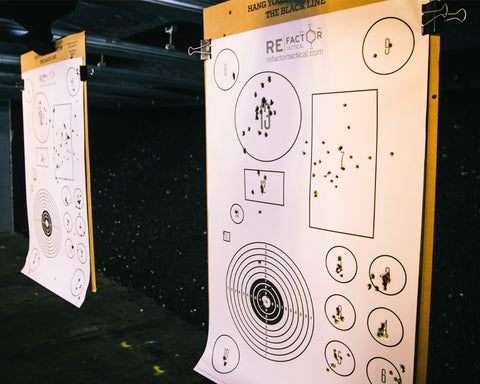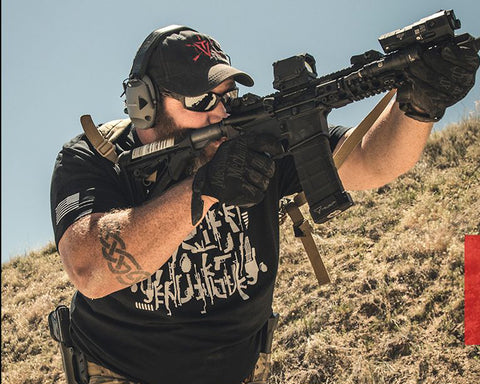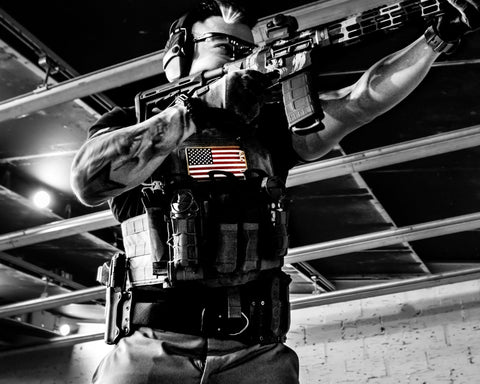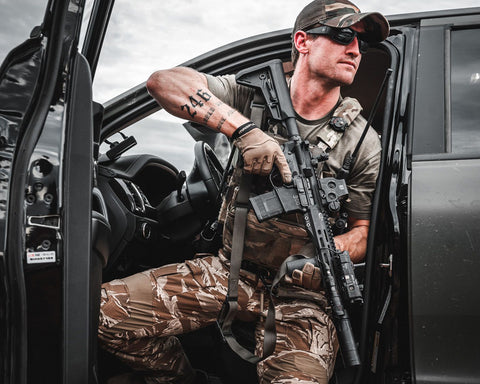It’s always a pleasure to write about medicine that favorably impacts millions of people across the planet. With the ever-changing laws in our country, the military is put in a very difficult place. Marijuana is now legal for either recreational (11 states) use or medical use in 47 of 50 states in our great nation. Since Marijuana is still classified as a Schedule 1 drug by the DEA, the U.S. military has to have a zero-tolerance policy, which means they’ll punish you for any use of the cannabis plant (including hemp) under article 92 of the Uniform Code of Military Justice (UCMJ). If this wasn’t already confusing, Congress signed into law the Agricultural Improvement Act of 2018. This new law legalized the production of hemp in our country again. In this blog, However, according to the Under Secretary of Defense, Matthew Donavan, CBD (a non-psychoactive ingredient in hemp) will be prohibited for any use by military personnel.
What is CBD?
According to Harvard University, Cannabidiol (CBD) is the 2nd most prevalent ingredient of cannabis behind Tetrahydrocannabinol (THC). THC is the compound that gets you high, but CBD does not. According to the World Health Organization (WHO), CBD by itself has never shown any instance of getting someone high. To make this as easy as possible to understand, CBD is harvested from the cousin of the marijuana plant we all know and love, known as hemp. Hemp contains less than .3 % THC, which essentially means you can smoke a wheel barrel of hemp and you’ll pass out from smoke inhalation before you feel any kind of high. SO, if CBD can’t get you high, why does the Department of Defense (DOD) care if soldiers use CBD for pain, PTSD, stress, and dozens of other ailments?
What is THC?
Tetrahydrocannabinol (THC) is the chemical in marijuana that is responsible for getting people high. In short, our bodies naturally produce a chemical called a cannabinoid. These cannabinoids are located in the regions of the brain that are linked to memory, thinking, pleasure, hand-eye-coordination, and time perception. When you smoke marijuana the THC chemical attaches to the cannabinoid receptors in your brain and alters your perception, pleasure, coordination, and as everyone knows by now, short-term memory. According to the National Institute on Drug Abuse (NIDA), THC increases the levels of dopamine if your brain, which can alter depression and make someone happier while on the drug.
What is the Agricultural Adjustment Act of 2018?
According to the United States Department of Agriculture (USDA), the Agricultural Adjustment Act of 2018 (2018 Farm Bill), was created as a new economic opportunity for Americans to supplement their crops with hemp. Congress finally noticed that billions of dollars on hemp products, such as fibers, seeds, and oils, are being bought from nations such as China, Canada, and some countries in Europe. By allowing farmers to grow hemp, that money could be transferred to American farmers and increase our nation’s GDP by billions of dollars. The main product consumers are interested in is the CBD oil that is produced in abundance by the hemp plant.
Why Do Soldiers Want To Use CBD?
I think this as fair a question as any if we’re going to try and be objective. Why would anyone want to use the part of the marijuana plant that doesn’t get you high? I can’t speak for everyone, but CBD has shown to remedy the many ailments that soldiers face on a daily basis. For example, we have thousands of active-duty soldiers that have upwards of a dozen deployments to a war zone. Our brave infantry soldiers have logged thousands of miles under a rucksack weighing anywhere between 30-100 lbs in combat gear and boots. It’s inevitable for them to have torn up ACLs, MCLs, rotator cuffs, broken ankles, and herniated discs in their back. CBD has shown to reduce inflammation and limit the pain associated with these injuries.
CBD Reduces Anxiety and Depression
I understand and appreciate the respect that Hollywood and the media have shown the military, but the glorification of war has many consequences. Most of us that go to war, come back with minor bumps, scrapes, concussions, and fractures that are difficult to see from the outside. What you don’t see is that many of us have lost friends that we consider brothers and sisters. We have seen the tragedies of war on children and innocent families that can be impossible to un-see. As we get back to our country, it’s very confusing and hard to adjust from knowing your life can be over at any moment to the privileges of our safe nation. Anxiety creeps in and we become antsy and uncomfortable around crowds of people, loud environments, such as concerts, and unable to form new relationships.
According to the National Library of Medicine (NLM) and the National Institute of Health (NIH), CBD has shown to improve PTSD symptoms and reduce the anxiety that causes insomnia (inability to sleep). As depression and anxiety become more prevalent in our armed forces, CBD has become a great way for soldiers to self-heal without barbiturates (sleeping pills) and opioids. According to the WHO, “In humans, CBD exhibits no effects indicative of any abuse or dependence potential…. To date, there is no evidence of public health-related problems associated with the use of pure CBD.” CBD will give soldiers the ability to heal their “invisible wounds” without worrying about becoming addicted to drug that will only perpetuate anxiety.
Reduce Cancer Symptoms
It’s long been known (anecdotally) that marijuana helps cancer patients going through chemotherapy with reducing side-effects, such as nausea, vomiting, and pain. Now we have scientific peer-review studies that support that claim. According to the NLM, CBD has shown to reduce nausea and vomiting in cancer patients who have previously reported side-effects from chemotherapy. The NLM also has stated that CBD can reduce the spread of breast cancer cells by killing the cancer cells during a 2012 study. With the exposure to burn pits and unknown chemicals and environments, cancer has become a real problem in our military.
Substance-Abuse Treatments
There is no secret that many of our nation’s military members have a problem with substance abuse with either cigarettes or alcohol. I know during my 4 years, I struggled with abusing alcohol. The fact is that upwards of 324 million people in the world suffer from substance abuse, according to the NLM. In a study conducted by the NLM and the NIH, CBD has shown to reduce the desire of heroin and morphine to use the drug. I personally know dozens of soldiers who suffer from PTSD, insomnia, and turn to alcohol, sleeping pills, and cocaine to try and feel normal. With more research into CBD, we can help put an end to the dependence on alcohol and barbiturates.
Is CBD legal?
47 out of 50 states have legalized CBD in some form or another, but it doesn’t mean anything for the military because of the federal law dictated by the DEA. According to the DEA, Marijuana and its derivatives are in the Schedule 1 drug class. This means that the federal government doesn’t believe that marijuana or hemp has any medical advantages and is highly addictive. The DEA puts marijuana and hemp in the same class as heroin, LSD, ecstasy, and meth. However, as of 2017, the DEA has changed its stance regarding CBD to allow it if it’s from hemp and not marijuana. The official DEA response to CBD is below, but it basically says that since CBD can potentially contain other cannabinoids such as .3% of THC, they can’t ensure you’re complying with the law.
For practical purposes, all extracts that contain CBD will also contain at least small amounts of other cannabinoids.[1] However, if it were possible to produce from the cannabis plant an extract that contained only CBD and no other cannabinoids, such an extract would fall within the new drug code 7350. In view of this comment, the regulatory text accompanying new drug code 7350 has been modified slightly to make clear that it includes cannabis extracts that contain only one cannabinoid.
Why is CBD Illegal For the Military?
According to Matthew Donovan, the move to prohibit CBD from the use by the military is to “protect the integrity of the drug-testing program”. As illogical and stupid as this sounds, I understand where he is coming from. Since the Food and Drug Administration (FDA) hasn’t approved CBD yet, there is no regulation on companies to ensure their products are 100% CBD and not containing traces of THC. Donovan believes that since the FDA cant approve products yet and the DOD can’t maintain a proper list of approved products, all CBD products must be banned.
The Secretary of Defense States,
“I specifically find a military necessity to require a prohibition of this scope to ensure the military drug testing program continues to be able to identify the use of marijuana, which is prohibited, and to spare the U.S. military the risks and adverse effects marijuana use has on the mission readiness of individual service members and military units”,
What’s Next For the DOD?
The DOD is trying to ensure that nobody can claim a tainted CBD product as the reason they tested positive for THC in their system. As dumb as this new guideline is, it’s designed to protect soldiers from putting themselves into horrible situations. The memo has dictated that any failed test, regardless of what you say will be punishable by Article 92 of UCMJ to scare anyone from trying alternative medicine. Like all branches of the military fall in order, you can probably expect more random testing to keep everyone honest, so please be careful.
Conclusion
On February 26, 2020, Matthew Donovan released a memo about the new guidance in regards to the legality of CBD. In his statement, he urges all members of the military to stop using CBD products until federal regulation catches up. Since the FDA is unable to approve CBD as a dietary or medical remedy, the DOD can’t be sure of the authenticity of CBD products from companies around the globe that sell CBD. If you’re a member of the DOD, please follow this guideline and refrain from using CBD, until the law catches up with the logic of the people.






Leave a Reply
Your email address will not be published. Required fields are marked *